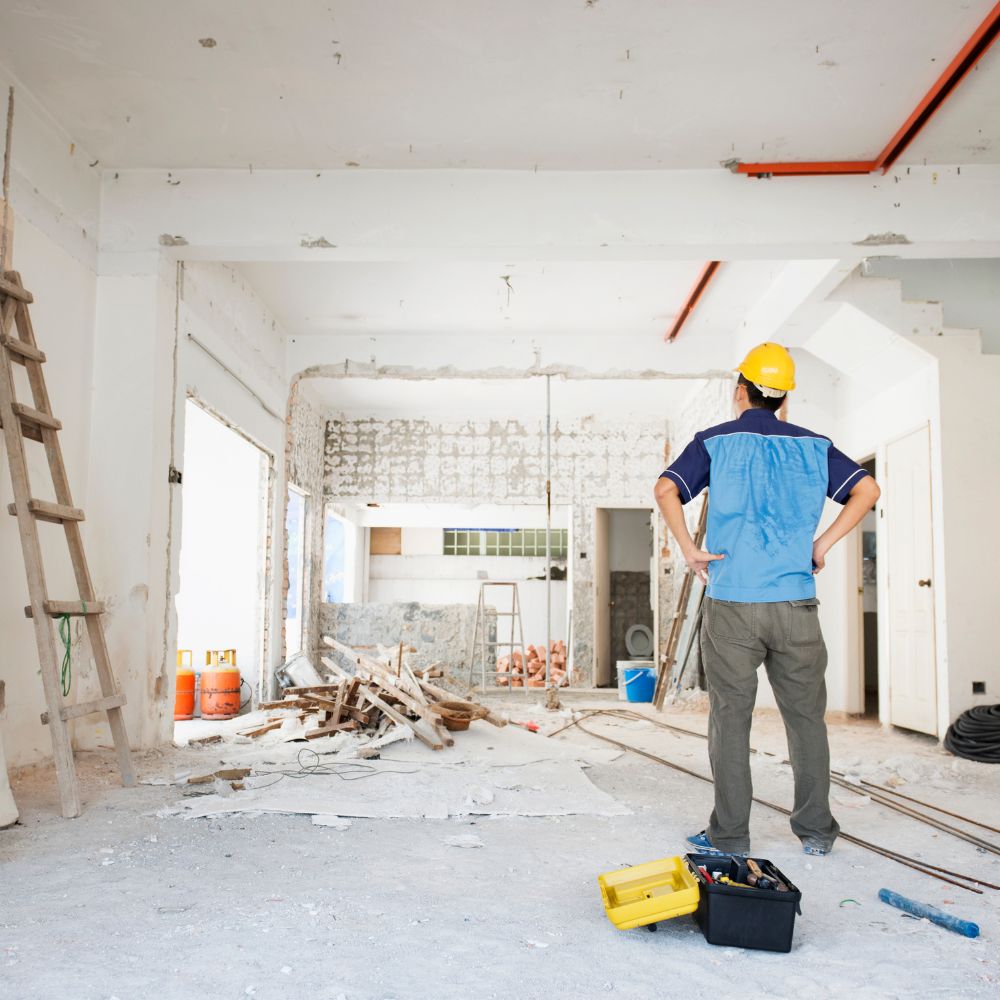
Renovation
Assessment and Planning: The first step involves assessing the current condition of the space or structure and identifying what changes are desired. This could include evaluating structural integrity, plumbing, electrical systems, and design aspects.
Budgeting: Setting a budget is crucial for determining the scope of the renovation and what changes can be realistically accomplished.
Design and Concept Development: Depending on the scale of the renovation, creating design plans, sketches, or architectural drawings can help visualize the changes and guide the project.
Obtaining Permits: Depending on the scope of the renovation, you may need to obtain permits from local authorities to ensure that the work complies with building codes and regulations.
Demolition and Removal: In some cases, existing elements that are no longer needed or outdated may be demolished or removed to make way for new improvements.
Structural Changes: Renovations might involve altering the layout, adding or removing walls, changing windows and doors, or making other structural modifications.
Mechanical and Electrical Work: Upgrading plumbing, electrical wiring, heating, ventilation, and air conditioning (HVAC) systems might be necessary to meet modern standards and enhance functionality.
Finishes and Materials: Choosing finishes like flooring, wall coverings, paint, cabinetry, countertops, and fixtures contributes to the space's aesthetics and functionality.
Construction and Installation: This phase involves implementing the planned changes, including installing new elements and systems, and ensuring proper construction techniques.
Quality Control and Inspections: Regular inspections during the renovation process help ensure that the work is being done correctly and up to code.
Finishing Touches: Adding final touches like lighting, furniture, decor, and landscaping can bring the renovated space to life.
Cleanup and Final Inspection: Once the renovation is complete, a thorough cleanup is performed, and a final inspection might be conducted to ensure that everything is in order.
Post-Renovation Evaluation: After the renovation is finished, it's important to assess whether the goals were achieved and if any additional adjustments are needed.
Renovation Types: Renovations can vary in scale, from small projects like updating a bathroom to larger projects like transforming an entire home or commercial space.
Sustainability: Many modern renovations focus on incorporating sustainable practices and materials to reduce environmental impact.



